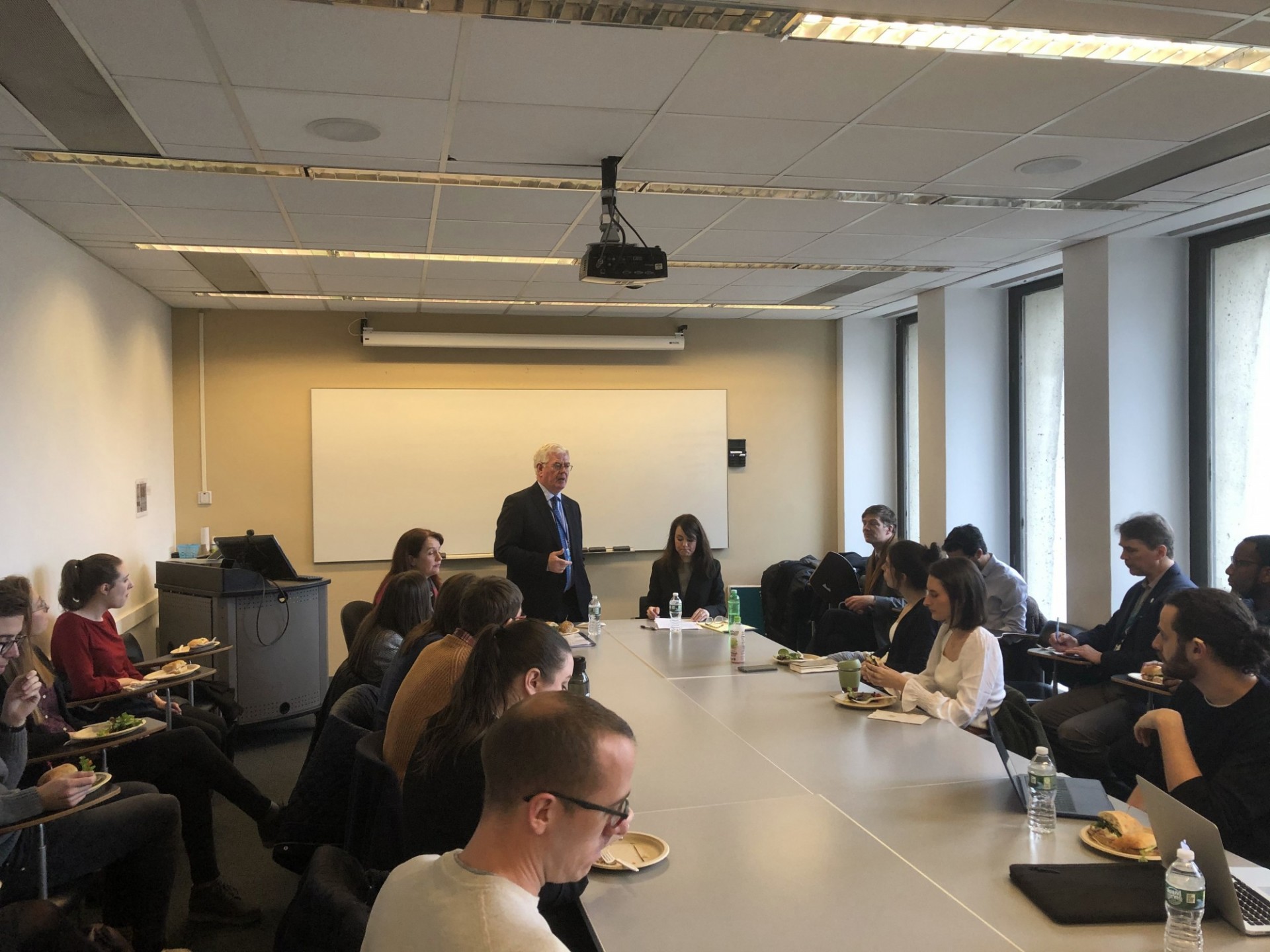Human rights, explained Special Representative Gilmore, are in Europe’s DNA and inherently part of the history that led to the establishment of the EU. Respect for human rights is therefore also a condition for Union membership. Human rights provisions are not only written down in the Treaties, but human rights policies are the subject of Strategic Frameworks, Action Plans, and Guidelines.
No other world power, regional organization, or country in the world – emphasized Gilmore - does more to protect human rights than the EU and its Member States. The European Instrument for Democracy & Human Rights (EIDHR) funds international bodies like the International Criminal Court, United Nations, and the Council of Europe. Additionally, around 30,000 individual human rights defenders are supported in their work on the ground or taken into protection by the EU or the organizations it supports.
Special Representative Gilmore gave an overview of the EU’s political and diplomatic support through resolutions in the Human Rights Council and other multilateral fora. This support includes thematic resolutions on, for example, the topics of sexual orientation and gender identity.
Human rights are also part of the work of EU delegations abroad. About 125 EU delegations have country specific strategies for human rights. They conduct bilateral human rights dialogues, host formal events with a human rights agenda, and report their activities yearly.
The goal is to incorporate human rights in every aspect of the functioning of the EU, through human rights clauses and labor and environmental protection provisions in trade agreements. The system for trade preferences for the least developed countries is conditional upon ratification of and compliance with human rights conventions.
Gilmore discussed his own role as Special Representative, in particular his involvement in human rights dialogues with Myanmar, Bangladesh, Ethiopia, and Eritrea. He also explained his intent to visit countries in the Persian Gulf and Middle East to discuss social media and labor rights.
Asked about Member States’ human rights violations at the EU’s external borders, Gilmore lauded the efforts of Member States to save migrants’ lives at sea and recognized negative aspects of Member States’ actions. He believes the best approach is to admit problematic aspects, while learning from other countries’ experiences with large migration flows. He mentioned Colombia as an example, a country where migrants’ children who are born on Colombian soil are automatically granted citizenship, despite their parents’ status. Within the EU, Gilmore emphasized the importance of the Fundamental Rights Agency in collecting data on the Union’s human rights activities.
About Myanmar, Gilmore explained that the EU engages in annual human rights dialogues with the Burmese government. Before each dialogue there is a civil society seminar where organizations present thematic issues. Gilmore expressed that “there is not a single mention of the Rohingya in the presentations made by local organizations.” While treatment of the Rohingya was not considered to be an issue by Myanmar’s civil society, this topic was incorporated in the EU’s human rights dialogue. “While Myanmar is moving in the right direction, there is still an elephant in the room,” Gilmore acknowledged.
The Special Representative also reflected on the need for the EU to adjust to the challenges posed by populism and authoritarianism globally.
Gilmore was asked by a member of the audience how the EU is adapting to the reality that the world is currently governed by strongmen. “The world is changing and the multilateral system is under strain,” said Gilmore. “Big countries tend to redefine human rights and establish a hierarchy of rights. We need not to compromise, human rights are universal rights and not policy optional. We have to broaden human rights constituency and language. This should be done by the business and private sectors as well.” The Special Representative acknowledged that strongman leadership is assumed with the approval of the people. “Most strongmen are popular and use human rights issues to their advantage.” Gilmore emphasized the need to abandon conversations on European values. “These are universal values. Some countries have the idea that the EU is ‘preachy’ and pursues a new form of colonialism, and we have to put bigger emphasis on social and economic rights.”
The conversation ended with the protests in Hong Kong. “There is a tension between the pursuit of values and interests,” said Gilmore. “There will always be this tension and we have to keep focusing on values. People have the right to protest, this is how the political nature of governance is settled. It is not up to the EU or any other country to intervene but the EU and the international community have an interest in ensuring human rights protection in Hong Kong.” A consistent application of human rights is also important. “There is no place in the world that should close doors to human rights rapporteurs.”
